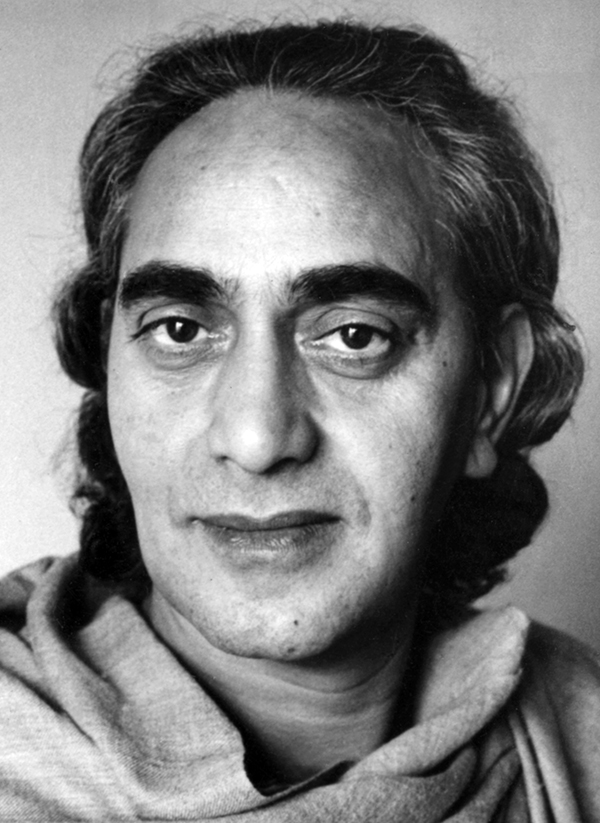The Upanishads say that first you will have to face the external world. You will have to learn the technique of doing your duties in the external world. If you know how to live in the external world, perhaps the external world will not create any barriers on the path of unfoldment. Can the external world help you in attaining the goal of life? Yes and no, both. If the external world does not create problems for you, then it is helpful. If external world creates problems for you, then it’s impossible for you to progress on the path of unfoldment. I am here, now. If you all decide that Swamiji should not meditate, I cannot, for you will kick me from this side, give me a blow from the other side, creating hindrances for me. How can I meditate? So, external world can create barriers for you. If the barriers are not there, it is a great help.
When Alexander the Great invaded India, his teacher asked him to bring back two things: the flute and the scripture called the Bhagavad Gita. So after conquering a part of India, he told his prime minister, “I want to meet a swami, a wise man, because the flute and Gita will be of no use if there is no swami.” The minister went in search of a wise man. He asked the people around and someone said, “Such and such a person, sitting on that mountain is a wise man and he will help you, sir.” That wise man was sitting on a rock. Alexander approached him and said, “What can I do for you, sir?” He smiled, but did not look at Alexander. So the prime minister said, “He’s Alexander the Great. Perhaps you do not know that he’s a very great man of the world, a very famous warrior who conquered the whole world.” The wise man would not look at him. So again Alexander asked, “What can I do for you, sir?” He replied, “Just remove yourself, let the sunlight shine on me. That’s what you can do.”
What can you do for others? If you do not create any barrier, any hindrance, any problem for others, that is a great help. This is my point. When you go out to help somebody, perhaps your selfishness and ego are mingled, and that will not help. Don’t create barriers, hindrances and obstacles for others; let them grow. Let them unfold; let them tread the path of light. That is the greatest help that you can give. It’s called minding your own business!
All the things in the world have a name and form. Is there any form that does not go through change, death and decay? So name and form are temporary aspects of that something which goes on changing. There is one word in Sanskrit for this world, samsara. It continues, goes on, like a river that goes on flowing. One mass of water passes, yet another mass comes, fills that gap and there is no gap at all. There is continuity. We will all go away, others will come. There will be continuity. This world will always remain crowded, over-crowded. So, this is the world, this is samsara. Now this external aspect of samsara, of this universe, is called Vaishvanara.
Herein lies a secret for the sadhaka, the aspirant. To turn the consciousness within, you will have to use a method of withdrawing the senses from the external world. That is called sparsa yoga, yoga of touch. If you analyze two things in your life, one called pain and another called pleasure, you will come to know that pain and pleasure, these two stimuli, are received when your senses contact matter. The Gita explains it this way, matra sparshastu kaunteya sheetoshna sukha dukha da. You feel pain and pleasure, heat and cold because your senses contact the objects of the external world. If you can stop doing this, you will not feel pain or pleasure; you will not feel heat or cold. So all the time, with the help of your senses, you are in contact with the objects of the external world. You do not know how to withdraw your senses. That is why on the eight runged ladder of yoga, ashtanga yoga, the fifth rung, pratyahara or sensory withdrawal, is very important. There are no books on the subject of pratyahara. There are books on concentration, there are books on meditation, there are books on samadhi, but there are no books on pratyahara, because it’s a practical technique. You should learn to withdraw your senses, to turn inward, because the senses make you contact the external world and that’s why you feel pain and pleasure. You have to be free from pain and pleasure; you can be free!
Reprinted from Om the Eternal Witness, by Swami Rama, an HIHT publication.

